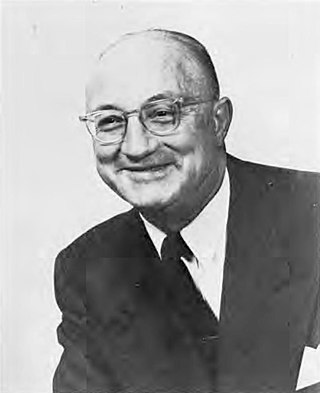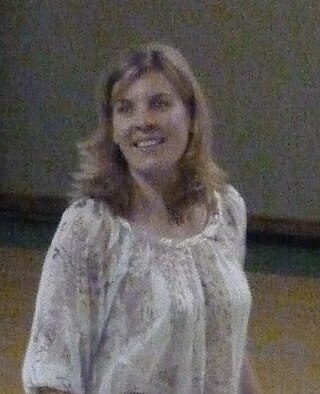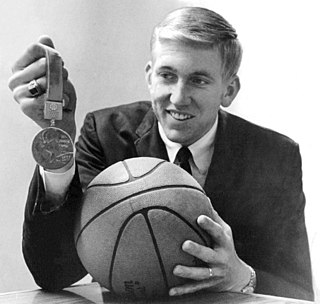Related Research Articles

Nancy Ilizabeth Lieberman, nicknamed "Lady Magic", is an American former professional basketball player and coach in the Women's National Basketball Association (WNBA) who is currently a broadcaster for the Oklahoma City Thunder of the National Basketball Association (NBA) as well as the head coach of Power, a team in the BIG3 which she led to its 2018 Championship. Lieberman is regarded as one of the greatest figures in American women's basketball.

W. Harold Anderson was an American college men's basketball coach at Bowling Green State University and the University of Toledo. As a player, he played at Otterbein College, a small liberal arts college outside Columbus, Ohio. As a coach he was one of the first to win more than 500 games on the collegiate level. Anderson was inducted into the Naismith Basketball Hall of Fame in 1985 and the College Basketball Hall of Fame in 2006.

Tara Ann VanDerveer is a retired American basketball coach who was the head women's basketball coach at Stanford University from 1985 until her retirement in 2024. Designated the Setsuko Ishiyama Director of Women's Basketball, VanDerveer led the Stanford Cardinal to three NCAA Women's Division I Basketball Championships: in 1990, 1992 and 2021. She stepped away from the Stanford program for a year to serve as the U.S. national team head coach at the 1996 Olympic Games. VanDerveer is the 1990 Naismith National Coach of the Year and a ten-time Pac-12 Coach of the Year. VanDerveer was inducted into the Women's Basketball Hall of Fame in 2002.

James Randel "Randy" Matson is an American track and field athlete who mostly competed in the shot put. Matson won a silver medal at the 1964 and a gold medal at the 1968 Olympics.
Zigmund John "Red" Mihalik was an American basketball player and referee of Polish descent. Inducted into the Naismith Memorial Basketball Hall of Fame in 1986, he was then inducted into the National Polish-American Sports Hall of Fame at St. Mary's College in Orchard Lake, Michigan on June 13, 1996.

Isabelle Alice Fijalkowski, now Isabelle Fijalkowski-Tournebize, is a retired French basketball player. She was inducted into the French Basketball Hall of Fame, in 2011.

Wilmer Frederick Hosket is an American former professional basketball player. He played five seasons in the National Basketball Association (NBA) and played college basketball for the Ohio State Buckeyes.
Abdel Moneim Wahby was an Egyptian basketball player who played for Al Ahly, referee and administrator. He played for the Egypt national basketball team in the 1936 Olympics. As a referee, he worked at the 1948 Olympics and 1952 Olympics. He served as the president of the Egyptian Basketball Federation (1952–1969), president of AFABA (1961–1969), Vice President of the FIBA (1961–1968), President of the FIBA (1968–1976) and President of the Egyptian Olympic Committee (1972–1974). He was enshrined as a contributor in the FIBA Hall of Fame in 2007.

Danielle Racquel Scott-Arruda is an American former volleyball player. She played at the 1996, 2000, 2004, 2008, and the 2012 Summer Olympics, breaking a U.S. female volleyball athlete record for Olympic appearances.
Robyn Maher is an Australian former basketball player. A three-time Olympian, she was a member of the national women's team that won the bronze medal at the 1996 Summer Olympics in Atlanta, Georgia. In the Women's National Basketball League, she played for the Nunawading Spectres, Hobart Islanders, Perth Breakers and Sydney Uni Flames.
Mathieu Faye is a Senegalese former basketball player. Faye competed for Senegal at the 1980 Summer Olympics, where he scored 57 points in 6 games. He was born in Dakar. He won the 1983 Korać Cup with France's CSP Limoges basketball team.
Danira Bilić is a retired Croatian basketball player. As part of the Yugoslavian women's team, she won a silver medal at the 1988 Seoul Olympics. She was European basketball's Most Valuable Player three times running, in 1988, 1989 and 1990. In 1991, she was awarded Croatia's highest national recognition for sports, the Franjo Bučar State Award for Sport.
Cynthia Jane "Cindy" Brogdon is an American former basketball player who competed in the 1976 Summer Olympics. Brogdon was inducted into the Women's Basketball Hall of Fame in 2002.
The following are the basketball events of the year 1991 throughout the world.
Marième Boye is a Senegalese former sprinter who represented her country in international competitions. She competed in the women's 100 metres at the 1980 Summer Olympics.
Adja Marieme Diop is a Senegalese judoka. She competed in the women's heavyweight event at the 2000 Summer Olympics.
Ágnes Németh is a Hungarian basketball player. She competed in the women's tournament at the 1980 Summer Olympics.
The following are the basketball events of the year 2022 throughout the world.
Marieme Soda Lo is a Senegalese academic who lives in Canada. She founded the School of Cities at the University of Toronto, where she is the Director of African studies, and holds a professorial position in Women and Gender Studies.
References
- ↑ Basketball Reference
- 1 2 Evans, Hilary; Gjerde, Arild; Heijmans, Jeroen; Mallon, Bill; et al. "Marieme Lo". Olympics at Sports-Reference.com. Sports Reference LLC. Archived from the original on 18 April 2020. Retrieved 13 July 2012.
- 1 2 3 "Marieme Lo". Ohio Basketball Hall of Fame . Retrieved 18 July 2024.